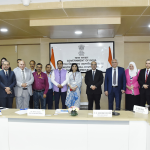
Pakistan can renovate a new pathway for Sustainable Aviation Fuel from waste crop
Pakistan’s sustainable aviation fuel production from crop waste isn’t just an environmental daydream. According to economic and energy experts, alongside ecological activists, it represents a tangible pathway for Pakistan to transform its vast agricultural abundance into a position of leadership in the rapidly expanding sustainable aviation fuel (SAF) market.
Every year, millions of tonnes of crop residue are burned in Pakistan’s agricultural regions, particularly in Punjab. The practice, primarily employed to clear fields for the next planting season, creates significant air pollution and wastes valuable biomass resources.
The successful development of Pakistan’s first SAF facility, described as “the first private sector-led SAF project in Asia and the Pacific” by the ADB, marks a significant first step.
According to experts quoted by The Express Tribune, these residues – including rice husks, wheat straw, and bagasse – represent an under utilised resource with “immense potential for SAF production.”
The development of Pakistan’s sustainable aviation fuel infrastructure offers a unique approach to produce aviation fuel domestically from agricultural waste, Pakistan could reduce its dependence on imported petroleum products.
Dr Adeel Ghayur, an “eminent energy scientist and expert in circular economy,” said that larger refineries “require multi-billion-dollar investments but have the potential to generate thousands of jobs, boosting economic activity in their regions.” The growing global demand for SAF presents significant investment opportunities. According to Pakistan Today’s December 2024 report, the recent $121 million financing deal for Pakistan’s first SAF facility in Sheikhupura – supported by the Asian Development Bank ($86.2 million) and the International Finance Corporation ($35 million) – demonstrates viability.
Converting crop waste to SAF addresses two environmental problems simultaneously: reducing air pollution from crop burning and decreasing aviation carbon emissions. The aviation industry and the scientific community consider that SAF can reduce greenhouse gas emissions by up to 94% compared to conventional jet fuel.
The SAFCO Venture Holdings Limited facility in Sheikhupura is expected to produce 200,000 tons of SAF annually, according to Pakistan Today, and demonstrates the scalability of such projects.
As global aviation fuel demand exceeds 250 million metric tonnes annually and mandates for SAF usage increase in the European Union, United Kingdom, and United States, Pakistan faces a limited window to establish itself in this growing market.
The successful development of Pakistan’s first SAF facility, described as “the first private sector-led SAF project in Asia and the Pacific” by the ADB, marks a significant first step. The facility will not only produce SAF but also 18,000 tons of bio naphtha annually, a raw material for sustainable plastic production.











